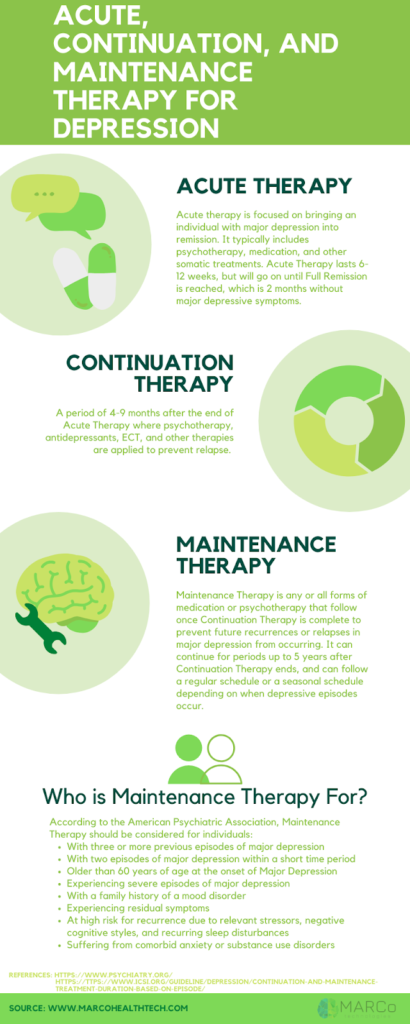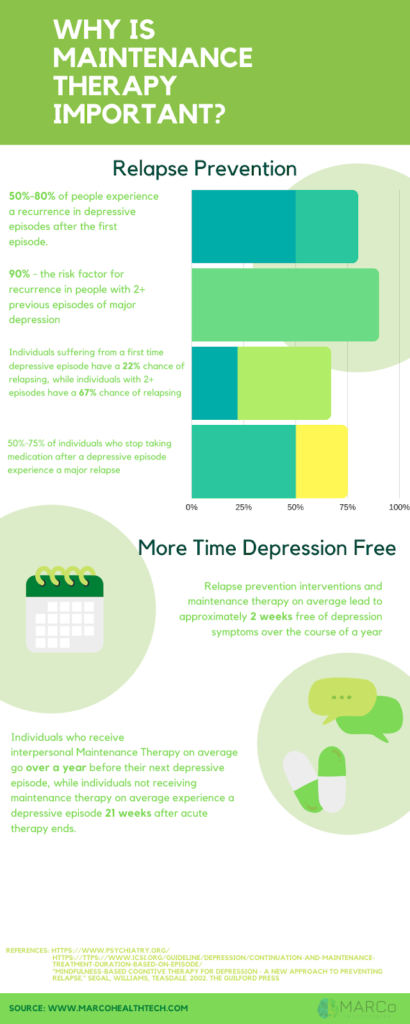
"How long is therapy?"
It is such a common question when starting on depression therapy, but a straightforward answer is hard to get.
"You can't come to therapy forever."
That's what one of my close friend's therapist told her during their third session together!
At first I thought that was outrageous of the therapist to say that upfront. However, there is some truth to that statement; therapy is about learning to apply the skills you develop in session to your life outside of session so that you can become self-sufficient on your own. But the amount of time everyone needs to be on therapy varies greatly from person to person, especially if you are struggling with symptoms of depression.
Relying on depression therapy without seeing an end in sight can lead to learned helplessness, where you become too reliant on others without thinking you can help yourself, but staying on therapy for too short a time can lead to relapse, especially if you are young.
So, you may ask again, "how long should I be in therapy if I am struggling with depression?" Check out this infographic compiled from the work of several renowned psychologists and organizations to make an informed decision to best improve your mental health and overcome your depressive symptoms, permanently, using depression statistics and psychological science.
3 Proven Steps of Depression Therapy that Prevent Relapse of Depressive Symptoms

Transcript of infographic 1 of 2 answering "how long should I be in therapy":
Acute, Continuation, and Maintenance Depression Therapy
Acute Therapy:
Acute therapy is focused on bringing an individual with major depression into remission. It typically includes psychotherapy, medication, and other somatic treatments. Acute Therapy lasts 6-12 weeks, but will go on until Full Remission is reached, which is 2 months without major depressive symptoms.
Continuation Therapy
A period of 4-9 months after the end of Acute Therapy where psychotherapy, antidepressants, ECT, and other therapies are applied to prevent relapse.
Maintenance Therapy
Maintenance Therapy is any or all forms of medication or psychotherapy that follow once Continuation Therapy is complete to prevent future recurrences or relapses in major depression from occurring. It can continue for periods up to 5 years after Continuation Therapy ends, and can follow a regular schedule or a seasonal schedule depending on when depressive episodes occur.
Who is Maintenance Therapy For?
According to the American Psychiatric Association, who compiles depression statistics, Maintenance Therapy should be considered for individuals:
- With three or more previous episodes of major depression
- With two episodes of major depression within a short time period
- Older than 60 years of age at the onset of Major Depression
- Experiencing severe episodes of major depression
- With a family history of a mood disorder
- Experiencing residual symptoms
- At high risk for recurrence due to relevant stressors, negative cognitive styles, and recurring sleep disturbances
- Suffering from comorbid anxiety or substance use disorders
Is Long Term Therapy For Me? Just How Long Is Therapy, After All? (Including Depression Statistics and Relapse Statistics)

Infographic Transcript 2 of 2 answering "how long should I be in therapy" and providing depression statistics:
Why is maintenance therapy important?
Relapse Prevention
50%-80% of people experience a recurrence in depressive episodes after the first episode.
90% - the risk factor for recurrence in people with 2+ previous episodes of major depression
Individuals suffering from a first time depressive episode have a 22% chance of relapsing, while individuals with 2+ episodes have a 67% chance of relapsing
50%-75% of individuals who stop taking medication after a depressive episode experience a major relapse
More Time Depression Free
Relapse prevention interventions and maintenance therapy on average lead to approximately 2 weeks free of depression symptoms over the course of a year
Individuals who receive interpersonal Maintenance Therapy on average go over a year before their next depressive episode, while individuals not receiving maintenance therapy on average experience a depressive episode 21 weeks after acute therapy ends.
These depression statistics are compiled from multiple sources to help you determine how long should I be in therapy. The sources include:
References: https://www.psychiatry.org/
Like many things in life, there is no one simple answer for the question "how long should I be in therapy?" But with the work of many in the psychological field, you can make a better decision on whether you just need brief counseling for a few weeks or if you need a longer term depression therapy plan for preventing relapse years down the line.
If depression therapy is not quite right for you, or you want support outside of session, a good tool includes therapy or mental health chatbots. MARCo - the Mental-Health Assisting Robot Companion - is your ideal companion for all your mental health needs, whether you are struggling with depressed moods, anxieties, stresses, or just want to find more fulfillment and wellness in your life! You can talk to MARCo in person as a physical robot or through the app. Go to the Get MARCo! tab to find out how your robot best friend can help you through your own mental health struggles.
If you are still wondering "how long should I be in therapy," you can also check out our resources page for additional info and resources for depression support.
